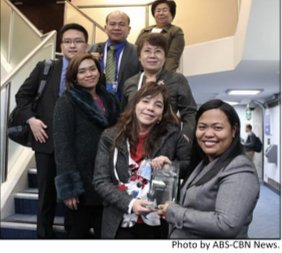What does it mean to be a “bright spot”?
The Citizen Participatory Audit bagged the Bright Spots Award in the Open Government Partnership Summit held in London on October 31 to November 1 last year.
It’s a validation of the promise offered by the project undertaken by the Commission and Audit (COA) and the Affiliated Network for Social Accountability in East Asia and the Pacific (ANSA-EAP).
CPA brings together the government (through COA) and citizen groups in constructive engagement in pursuit of transparency, accountability and participation.
Interestingly, the award was given to the CPA at a time when the pork barrel scandal was putting Philippine public institutions to a serious test.
What is the Open Government Partnership?
The OGP was launched in 2011 “to provide an international platform for domestic reformers committed to making their governments more open, accountable, and responsive to citizens.”
In a span of a little over two years, the number of participating countries has grown from eight to 63. “OGP’s vision is that more governments become sustainably more transparent, more accountable, and more responsive to their own citizens, with the ultimate goal of improving the quality of governance, as well as the quality of services that citizens receive. This will require a shift in norms and culture to ensure genuine dialogue and collaboration between governments and civil society.”
As one of the eight founding members of the OGP, the Philippines has made these commitments:
- Sustaining transparency in national government plans and budget-related matters and processes;
- Supporting the passage of legislation on access to information and protection of whistleblowers;
- Engaging civil society in public audit;
- Enhancing performance benchmarks for local governance;
- Enhancing the government procurement system; andStrengthen grassroots participation in local planning and budgeting;
- In the London summit, the country added these to its list of commitments:
- Providing more accessible government data in a single portal and open format;
- Initiating fiscal transparency in the extractive industry; and
- Improving the ease of doing business in the Philippines
There were 1,000 summit participants from civil society, business and government in the 63 countries.
The CPA was among the seven short-listed entries for the Bright Spots Award. The others were projects from Chile, Estonia, Georgia, Indonesia, Montenegro, Philippines, and Romania. The selection of winners was done by voting. Ultimately, it emerged as the top contender.
ANSA-EAP’s Vivien Suerte-Cortez, project coordinator for CPA, sums up why the project gained the most number of votes: “other social audits are mainly conducted independently by civil society groups…under the CPA project, citizens are with auditors. They are not on the outside looking in.”
And indeed the CPA has brought together the COA and citizen groups in its three pilots – the Department of Public Works and Highway’s KAMANAVA flood control project, Quezon City’s Solid Waste Management Program, and the barangay health centers in Marikina City.
Since the CPA’s launch in November 2012 and leading to the conclusion of it first phase in March, the audit teams – composed of state auditors and representatives of citizen groups – have developed a mix of tools like data gathering activities, surveys and score cards that complement the technical process of COA-style audits. The resulting report carries the stamp of COA’s authority.
Dondon Parafina, ANSA-EAP executive director, says that COA’s opening up its audit process to citizens is a milestone in itself.
Moving forward
The Bright Spots Award came at a time when the pork barrel scandal was casting serious doubt in Philippine government institutions, specifically the Legislative and Executive departments as well as the NGO sector. Months later, cases still have to progress even as the Priority Development Assistance Fund has been declared unconstitutional by the Supreme Court.
The CPA then stresses the need for governments and citizens to work together instead of taking an adversarial and mutually distrustful approach.
“Being recognized was one way of putting pressure on government to take reform initiatives like CPA seriously,” added Cortez.
She said the project also highlighted the weak accountability mechanisms in the country.
In the 2012 Independent Reporting Mechanism’s Report, the Philippines was deemed only having “partially fulfilled” its commitments as of 2012 – mainly because of the country’s continued failure to pass the freedom of information bill. The Executive has not certified the bill as urgent.
The chairperson of the Senate Committee on Public Information and Mass Media, Senator Grace Poe Llamanzares, says she is confident that the bill would soon pass, especially since the latest draft of the legislation contains several features pertinent to the Philippine OGP commitment.
In the meantime, the CPA project is nearing the end of its first phase, with the three teams consolidating their findings and recommendations.
The road to transparency is never easy, but constructive engagement between government and citizens emphasizes that everybody has a stake on whatever happens to the country.
May the CPA’s Bright Spots Award give way to yet more enlightened initiatives for a truly participatory and inclusive approach to governance.

